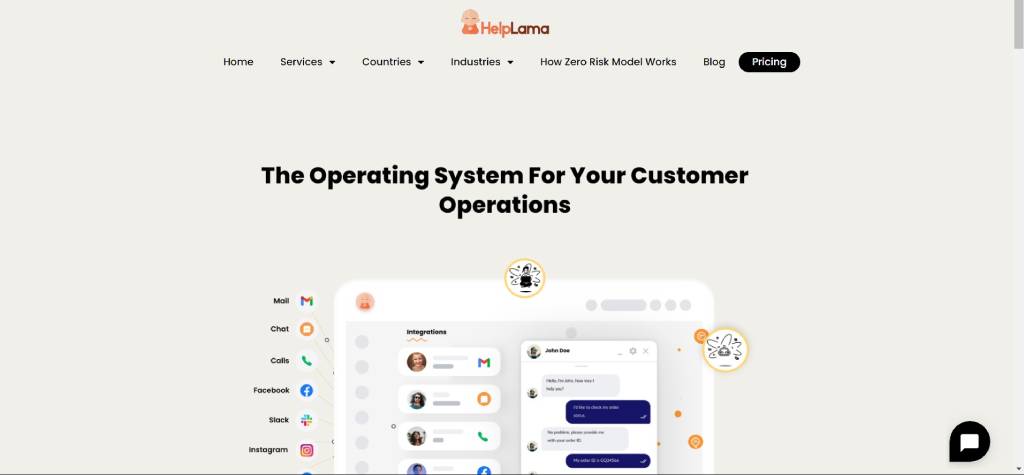As businesses grow, the decision to expand operations often involves choosing between two key strategies: outsourcing vs offshoring. Both approaches offer unique benefits and considerations. This comprehensive guide explores the intricacies of outsourcing and offshoring, empowering you to make an informed decision aligned with your business objectives.
Delve into the differences, advantages, and potential challenges of each option to determine the strategy that best suits your specific needs and propels your business toward success.
Table of contents
Outsourcing vs Offshoring
| Outsourcing | Offshoring | |
| Definition | Delegating business operations to an external organization | Moving jobs or business operations to a foreign nation or alternative location. |
| Location | Can be within or outside the country | Outside the country |
| Benefits | 1. Cost efficiency 2. Allows the company to increase focus on the core operations 3. High-quality service 4. Labor flexibility 5. Access to external resources | 1. Cost reduction 2. Tax benefits 3. Fewer regulations 4. More control of operations |
| Drawbacks | 1. Risk of exposing sensitive information 2. Less management control | 1. Communication issues 2. Language barrier 3. Less quality control 4. Time difference |
| Goals | Companies aim to maximize efficiency and assign certain duties to organizations with industry expertise. | Businesses seek cost savings while retaining control over their operations. |
What is Outsourcing?
Outsourcing is delegating specific business operations or tasks to external organizations or service providers rather than handling them in-house. This strategy allows companies to focus on their core competencies while leveraging the expertise and resources of third-party providers to perform non-core functions.
Outsourcing Pros and Cons
Outsourcing Business: Consider the following advantages and drawbacks before offshoring your business operations:
Benefits of Outsourcing
- Cost Reduction: It enables access to high-quality work without incurring expenses like hiring, infrastructure, and technology costs.
- Internal Resource Allocation: With outsourcing partners handling certain processes, internal employees can focus on core responsibilities and projects.
- Access to Skilled Resources: External providers bring specialized expertise and resources that may not be available internally.
- Increased Efficiency: Contracting work to an offshore team can enhance efficiency without the need for extensive hiring and training processes.
Risks of Outsourcing
- Loss of Control: Transfers control of certain projects to external providers, requiring careful management to maintain quality and oversight.
- Data Exposure Risk: There is a potential risk of exposing confidential company information when outsourcing, mitigated by proper Non-Disclosure Agreements (NDAs).
What is Offshoring?
Offshoring, a strategic business practice, involves relocating operations to a foreign country. This move, driven by factors like cost savings and access to specialized skills, aims to enhance efficiency. Despite its benefits, offshoring comes with challenges such as communication issues and the need for effective management strategies.
Pros and Cons of Offshoring
Offshoring presents both advantages and challenges in the business landscape.
Benefits of Offshoring
- Cost Reduction: Offshoring lowers labor and production expenses by utilizing resources in countries with lower costs.
- Control: Businesses maintain internal control over functions, enhancing oversight of projects and processes.
- Tax Benefits: Some countries offer tax relief and benefits, providing additional advantages.
- Geo-balancing: Distribution of agent capacity across different locations ensures proximity and business continuity.
Risks of Offshoring
- Communication Challenges: Offshoring introduces the risk of reduced or ineffective communication between teams.
- Language Barriers: Differences in language can create challenges in effective communication.
- Quality Concerns: The remote location’s working culture and supply chains may impact the quality of work, even with in-house operations.
Offshore Outsourcing
Offshore outsourcing involves hiring an external company in another country to perform business functions, combining quality services with cost reduction. Nevertheless, it carries an array of advantages and risks.
Benefits of Offshore Outsourcing
- Increases Efficiency: Leveraging the expertise of an external provider in a different country allows businesses to streamline processes, complete tasks quickly, and often exceed project timelines.
- Lower Costs: Offshore outsourcing provides a cost-effective solution by reducing operational and labor costs. Companies can access skilled talent at a lower expense.
- Focus on Core Tasks: By outsourcing non-essential functions, companies can concentrate more on their core tasks and strategic priorities, leading to enhanced overall performance.
- Geo-balancing for Business Continuity: Maintaining operations across different countries and time zones ensures business continuity, providing resilience in the face of emergencies or disruptions.
Risks of Offshore Outsourcing
- Hidden Costs: Companies may encounter unforeseen expenses, such as additional fees or unexpected charges, impacting the overall cost-effectiveness initially anticipated.
- Confidential Data Security: Entrusting tasks to offshore teams raises concerns about data security.
- Lack of Control: Offshore outsourcing may result in a diminished level of control over various aspects, including the quality of work, distribution of tasks, and project management.
Tips for Deciding Between Offshoring vs Outsourcing
Consider the following tips when determining whether to opt for offshoring or outsourcing for your company operations:
1. Assess the Time Requirement
Outsourcing is effective for short-term or occasional services. For instance, a marketing company with sporadic video production needs may outsource this service to meet client requests promptly, avoiding the time investment of in-house hiring.
2. Determine Preferred Control
Companies desiring comprehensive control over operations may lean towards offshoring. For example, a company manufacturing air fresheners might opt for offshore tasks like quality assurance checks in a foreign factory, ensuring greater control over the entire process.
3. Evaluate Confidentiality
Companies dealing with sensitive client information or confidential legal requirements may find outsourcing challenging. Confidentiality concerns may necessitate additional monitoring or precautions to prevent breaches when outsourcing tasks.
4. Consider Speed of Service:
Offshoring involves training employees, and considering cultural differences, communication challenges, and time zone disparities. While it may lead to a temporary productivity slowdown, offshoring proves highly profitable in the long run. Conversely, if rapid service is crucial, outsourcing allows a third-party provider to focus solely on the task, ensuring a quicker turnaround.
Helplama: Elevating Outsourced Customer Service
Outsourcing customer service to Helplama can be a game-changer for your business. Specializing in delivering top-notch support solutions, Helplama stands out with a range of features tailored to meet your unique needs.
Key Features
- Multichannel Support: Offers diverse support through email, chat, and phone, ensuring customers can connect via their preferred channels.
- 24/7 Availability: With Helplama, enjoy round-the-clock customer support, fostering trust and loyalty with uninterrupted service.
- Expertly Trained Agents: Helplama’s agents are skilled in handling varied queries, and providing efficient solutions for technical issues, product inquiries, and general support.
- Scalable Solutions: Scales services as your business grows, ensuring responsive customer support during periods of increased demand.
- Customized Service Packages: Tailor Helplama’s support solutions align seamlessly with your brand and customer service objectives with customizable packages.
- Advanced Technology Integration: Integrates cutting-edge tools for streamlined processes, ensuring the efficient handling of customer interactions.
Final Words
In concluding the exploration of Outsourcing vs. Offshoring: Which Option is Right for You, carefully assess your business priorities, weighing the advantages and disadvantages of each approach. By aligning your operations with the most suitable model, you can enhance efficiency and achieve long-term success.



